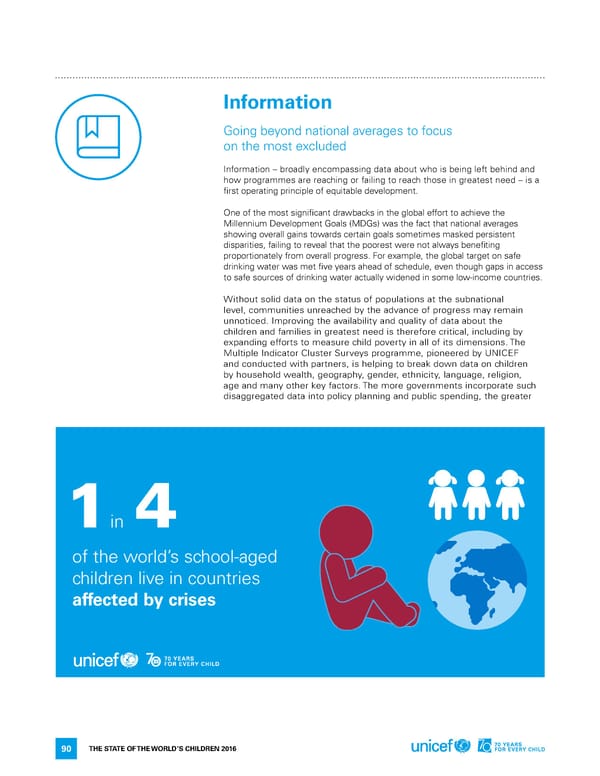Information Going beyond national averages to focus on the most excluded information – broadly encompassing data about who is being left behind and how programmes are reaching or failing to reach those in greatest need – is a first operating principle of equitable development. one of the most significant drawbacks in the global effort to achieve the Millennium development Goals (MdGs) was the fact that national averages showing overall gains towards certain goals sometimes masked persistent disparities, failing to reveal that the poorest were not always benefiting proportionately from overall progress. for example, the global target on safe drinking water was met five years ahead of schedule, even though gaps in access to safe sources of drinking water actually widened in some low-income countries. Without solid data on the status of populations at the subnational level, communities unreached by the advance of progress may remain unnoticed. improving the availability and quality of data about the children and families in greatest need is therefore critical, including by expanding efforts to measure child poverty in all of its dimensions. The Multiple indicator Cluster Surveys programme, pioneered by UniCef and conducted with partners, is helping to break down data on children by household wealth, geography, gender, ethnicity, language, religion, age and many other key factors. The more governments incorporate such disaggregated data into policy planning and public spending, the greater 1in 4 of the world’s school-aged children live in countries affected by crises The STaTe of The World’S Children 2016 90
 70 Years for Every Child Page 107 Page 109
70 Years for Every Child Page 107 Page 109